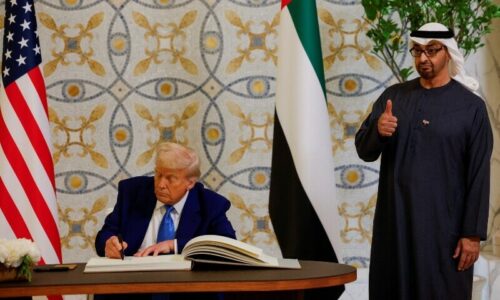By: Tahir Jamal Baig
War usually brings ruin, but this time something different is unfolding — for both Pakistan and Iran. These are highly encouraging signs, not just for the two brotherly nations but for the entire region, potentially transforming its destiny.
A striking sign of this shift emerged at the Shanghai Cooperation Organization (SCO) Defence Ministers’ Meeting held in Beijing. Pakistan’s Defense Minister, Khawaja Muhammad Asif, appeared with a rare assertiveness, embodying a new diplomatic poise. In contrast, Indian Defence Minister Rajnath Singh maintained a notably subdued presence.
Notably, India’s refusal to endorse the final declaration, citing alignment with Pakistan’s stance, marked an unusual and symbolic diplomatic reversal—one that bolstered Pakistan’s position and hinted at a crack in India’s multilateral posture.
More startling, perhaps, is the growing strategic understanding between Pakistan and Russia—a power traditionally regarded as India’s Cold War-era ally.. Within Indian political and media circles, disbelief lingers. “Why has Moscow changed its stance?” they ask. While some critics blame Prime Minister Narendra Modi’s foreign policy for the drift. The true answer lies deeper: in the tectonic realignments reshaping Eurasian diplomacy.
India is not just facing estrangement from Russia. At the recent G7 summit in Canada, India stood conspicuously on the margins. Even Donald Trump, who once lauded Narendra Modi his “brother: and “friend”, has shown a marked cooling in his attitude toward India.
This slow drift into isolation is not solely the consequence of any single diplomatic blunder or military setback. Rather, it reflects the cumulative cost of India’s strategic overreach: its ambitions to dominate regional narratives, its unchecked military posturing, and its alleged sponsorship of proxy networks—particularly via Afghanistan and factions such as the Tehrik-i-Taliban Pakistan (TTP).
Allegations of Indian-backed operations have now gone global. Western nations that once turned a blind eye—Canada, the United States, and the United Kingdom—have begun to openly raise concerns about extraterritorial actions allegedly linked to Indian intelligence. As the boomerang of covert aggression returns to its sender, India faces the diplomatic cost of its overreach. Few stand by the aggressor when it begins to falter.
In contrast, Pakistan—after years of costly lessons—has recalibrated its policies and scored decisive success in its counterterrorism efforts. The global community has taken notice. Pakistan is now seen not just as a guardian of its own borders but as a contributor to wider regional and global stability. India’s attempts to isolate Pakistan diplomatically and economically have largely failed. Today, Pakistan is reaping the dividends of strategic patience and pragmatism.
Following its recent success, Pakistan is being acknowledged as a rising global player. Its role in diplomatic backchannels amid the Iran-Israel confrontation has earned international praise. The U.S. President Donald Trump has openly praised the role of Pakistani leadership by recognizing their pivotal role—a rare and telling gesture from a U.S. leader historically wary of Pakistan’s military elite.
Pakistan finds itself navigating a period of acute domestic turbulence, marked by persistent political disquiet and economic distress. Inflation has soared, poverty deepened, and millions have fallen below the poverty line in the last 3 years.
Politically, the landscape remains contentious. The nation’s most popular political party has been largely excluded from parliamentary representation following legal and procedural setbacks. Its leader, Imran Khan, along with his core team, remains imprisoned under what are widely perceived as politically motivated charges. Meanwhile, the judiciary, long considered the guardian of balance, faces mounting accusations of subservience to unseen hands.
Yet amid this storm, the soul of Pakistan endures—resilient, resourceful, and rich with potential. The recent ceasefire agreement with India rekindled hope, revealing that strategic wisdom still pulses within its institutions. Only through restored trust and purposeful governance can Pakistan may yet reclaim the regional role for which it is uniquely positioned.
Much like Pakistan, Iran also finds itself at a pivotal juncture following its confrontation with Israel. Its calculated response to Israeli aggression demonstrated both tactical precision and strategic deterrence. Trump’s post-conflict remark that “Israel took a hit” was more than rhetoric—it was a geopolitical revelation. Whether Iran chooses to accept such praise or not, recognition from a U.S. President is diplomatically significant. This recognition is especially meaningful because it shatters the myth of Israel’s invincibility — a critical psychological milestone in the regional balance of power.
With China reportedly resuming oil imports from Iran and voices calling for easing U.S. sanctions growing more audible, Tehran may find itself on the brink of economic revitalization.
Iran’s victory also carries an economic dimension. Should this materialise, the economic benefits for Iran would be enormous and open avenues for greater regional trade and energy cooperation, benefitting Pakistan as well.
Yet, a shadow of uncertainty looms. Iran’s Parliament’s recent motion to exit the Nuclear Non-Proliferation Treaty (NPT), though symbolic, reflects internal pressure. While rooted in years of Western antagonism and unmet promises, such a step risks reigniting tensions. The question now is: Will Iran choose escalation, or will it consolidate its gains and seek strategic patience?
Encouragingly, Iran’s collaboration with Pakistan and its measured diplomacy throughout the recent crisis signal that restraint may yet prevail. As old rivalries erode and new alliances form, the Iran-Pakistan axis could emerge as a stabilizing force in a volatile region.
The two recent wars in the region have created opportunities amidst the ruins. Both Pakistan and Iran stand at a crossroads, armed with hard-earned diplomatic capital and international recognition.
One can only hope that the leadership of Pakistan and Iran seize this moment and work together to dawn a new era—an era in which West Asia no longer dances to the tune of distant empires, but charts its own sovereign symphony.




